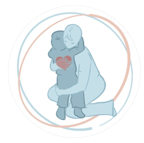Understanding Minds: Exploring Different Mental Health Disorders
Written by Eugenia, Charice, Helen, Michelle and Pheobe
2/12/20233 min read
Disclaimer!
Do not diagnose yourself with these mental disorders, as we are not professionals. These are only to inform you about mental disorders and how to support those who are diagnosed. Please ask the help of a professional to diagnose you or if you want to know more about this. Thank you!!
ADHD
Imagine a world where your brain works a little differently. You might find yourself easily distracted, struggling to stay organized, or feeling like you're constantly running on a different timeline than everyone else. This is the reality for millions of people who live with ADHD, or Attention-Deficit/Hyperactivity Disorder. While it can present challenges, it's also a condition that can be understood, managed, and even embraced. Let's dive into the world of ADHD and explore what it means to live with this neuro-developmental difference!
ADHD is a neuro-developmental condition that affects how people regulate their attention, behavior, and emotions, It's not just about being "distractible" or "hyper." ADHD involves differences in the brain that impact how people process information, manage time, and control impulses.
Depression
Imagine feeling worthless. Imagine having no initiative to do anything. Imagine that your life is meaningless. No one deserves that. Sadly, the severe and common mental disorder “depression” causes suicide, leading 700 000 people world wide to lose their lives each year. In fact, suicide is the top 4 leading cause of 15-29 year olds deaths (World health organization, 2023). A person with depression causes them to lose their interest or excitement in activities, such as hobbies as an example, for a long time. Not only that, depression impacts all aspects of one's life: thier relationships with those around them, their health and their mindset. This leads to problems related to school, home or work (for adults). Unfortunately, depression may be caused by abuse, losses and other stressful events which leads to developing PTSD.
Depression can also happen to ANYONE — from middle school students, to adults, and even to the old aged. But that doesn’t mean depression can’t be stopped! Some ways to cope with this is treatment such as:
Be Active
Exercising is one good example of being active! You can easily start with a 20 min walk everyday. A routine and healthy diet, such as avoiding drinking alcohol, is also helpful in fighting depression.
Stay In Touch
Socializing leads to improving your mood! People you trust, like a therapist, friends or family are suggested to talk to when you’re feeing down.
Seek Help & Face Your Fears
Don’t be afraid to talk to someone about your problems, remember you are not alone! We are all here to help you, so please don’t take it as being selfish! If you are scared of talking to others, have no fear as a therapist (or a psychiatrist) are here!
Dyslexia & Dyscalculia
Ever felt like you could never catch up on math’s class topics or struggled in language even if you tried very hard to learn it (being lazy is not an excuse)? Then you might consider checking up with a professional if you have dyslexia or dyscalculia. As the name describes itself, dyslexia is a disorder that causes difficulty in reading while dyscalculia is a disorder that causes difficulty in grasping math concepts. However, having either one of these disorders is not a reason to quit learning language or maths. There are certain ways to deal with this. For example, replacing numbers with images or objects allows dyscalculia people to easily understand the question more. For dyslexic people, audio books instead of reading and typing instead of writing allows dyslexic people to catch up more with the class.
Schizophrenia
Schizophrenia is a mental disorder caused by hallucinations and delusions, while bipolar disorder involves extreme mood swings between mania and depression. Both conditions affect thinking, emotions, and overall well-being, requiring different treatments for management.
Dementia
Memories are a way of keeping special moments alive, losing most of your memories of different events and people involved in your life is hurtful for both you and the people around you. Dementia is a disease for loss of memory, language, problem-solving, and other thinking abilities that interfere with daily life. However, Dementia is only the general term for loss of memory and other thinking abilities as there are a variety of diseases such as Alzheimer’s, Vascular, and Lewy bodies that cause abnormal brain changes. Did you know that the older you get, the higher the percentage you have to get dementia? CDC states that the percentage of dementia increases within age from 1.7% for those ages 65–74, 5.7% for those ages 75–84, and 13.1% for those age 85 and older.


